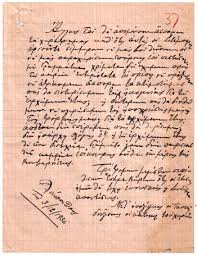Trevor Todd and Jackson Todd have over 60 years combined legal experience in handling estate disputes, including undee influence.
Re Campbell estate 2022 BCSC 2184 set aside a transfer in favour of one child over others on the basis of both undue influence and resulting trust.
The defendants knew that the deceased was frail and vulnerable and were clearly in a position of dominance over her.
UNDUE INFLUENCE
The law relating to the presumption of undue influence was described by Madam Justice Wilson in Geffen v. Goodman Estate, [1991] 2 S.C.R. 353 [Geffen]. At para. 23 she wrote that:
The equitable doctrine of undue influence was developed, as was pointed out by Lindley L.J. in Allcard v. Skinner (1887), 36 Ch. D. 145, not to save people from the consequences of their own folly but to save them from being victimized by other people (at pp. 182-83). In the context of gifts and other transactions, equity will intervene and set aside such arrangements if procured by undue influence.
[215] Undue influence will be presumed in certain relationships, such as doctor and patient, solicitor and client, and parent and child: Geffen at para. 28. The categories of relationships in which undue influence will be presumed are not fixed. Each case must be considered on its own facts to determine if a “special” relationship exists to support the presumption.
[216] At paras. 42–45, Wilson J. set out what must be established to trigger the presumption of undue influence in these terms:
[42] What then must a plaintiff establish in order to trigger a presumption of undue influence? In my view, the inquiry should begin with an examination of the relationship between the parties. The first question to be addressed in all cases is whether the potential for domination inheres in the nature of the relationship itself. This test embraces those relationships which equity has already recognized as giving rise to the presumption, such as solicitor and client, parent and child, and guardian and ward, as well as other relationships of dependency which defy easy categorization.
[43] Having established the requisite type of relationship to support the presumption, the next phase of the inquiry involves an examination of the nature of the transaction. When dealing with commercial transactions, I believe that the plaintiff should be obliged to show, in addition to the required relationship between the parties, that the contract worked unfairness either in the sense that he or she was unduly disadvantaged by it or that the defendant was unduly benefited by it. From the court’s point of view this added requirement is justified when dealing with commercial transactions because, as already mentioned, a court of equity, even while tempering the harshness of the common law, must accord some degree of deference to the principle of freedom of contract and the inviolability of bargains. Moreover, it can be assumed in the vast majority of commercial transactions that parties act in pursuance of their own self-interest. The mere fact, therefore, that the plaintiff seems to be giving more than he is getting is insufficient to trigger the presumption.
[44] By way of contrast, in situations where consideration is not an issue, e.g., gifts and bequests, it seems to me quite inappropriate to put a plaintiff to the proof of undue disadvantage or benefit in the result. In these situations the concern of the court is that such acts of beneficence not be tainted. It is enough, therefore, to establish the presence of a dominant relationship.
[45] Once the plaintiff has established that the circumstances are such as to trigger the application of the presumption, i.e., that apart from the details of the particular impugned transaction the nature of the relationship between the plaintiff and defendant was such that the potential for influence existed, the onus moves to the defendant to rebut it. As Lord Evershed M.R. stated in Zamet v. Hyman, supra, at p. 938, the plaintiff must be shown to have entered into the transaction as a result of his own “full, free and informed thought”. Substantively, this may entail a showing that no actual influence was deployed in the particular transaction, that the plaintiff had independent advice, and so on. Additionally, I agree with those authors who suggest that the magnitude of the disadvantage or benefit is cogent evidence going to the issue of whether influence was exercised.
[Emphasis added.]
[217] McMaster Estate v. McMaster, 2021 BCSC 1100 provides a recent illustration of the application of these principles in this court. In that case, a mother had purchased a home and registered it in joint title with one of her sons. While the deceased’s will provided for her estate to be split evenly between her children, the transfer had already taken nearly all of the deceased’s assets out of her estate. The estate alleged that the son who owned the house with the mother held it pursuant to a resulting trust or as a result of undue influence. In this context, Justice MacDonald summarized the applicable legal principles as follows:
[47] Undue influence is an equitable doctrine to prevent individuals from being taken advantage of by others. It addresses abuses of trust, confidence, and power spanning a range of transactions, including gifts, bequests, and commercial dealings. Transactions induced by undue influence may be set aside.
[48] Vulnerability and dependency are the hallmarks of undue influence.
[49] In order to trigger a presumption of undue influence, the first question to address is whether the potential for domination inheres in the nature of the relationship. The second phase of the inquiry involves an examination of the nature of the transaction: Geffen v. Goodman Estate, [1991] 2 S.C.R. 353 at paras. 40-44.
[50] A relationship of dependency involving a potential for domination may arise among family members: Geffen. A gratuitous transfer from a parent to an adult child does not automatically create a presumption of undue influence. In Wood v. Porter, 2015 BCSC 2354, this Court found a relationship of dependency and domination did not exist between an independent, active, and competent mother and her son. To establish the presumption of undue influence, the plaintiff must establish the existence of a relationship of potential dominance between the parent and the adult child: Modonese at para. 111.
[51] The second phase of the inquiry involves an examination of the nature of the transaction.
[52] To rebut the presumption of undue influence, the defendant must establish that the transferor entered into the transaction of her own “full, free and informed thought”: Geffen at para. 45.
[53] The following factors may be considered when scrutinizing the transaction to determine if Doreen entered into the transaction of her own “full, free and informed thought”: (i) the lack of actual influence or opportunity to influence her; (ii) whether she received or had opportunity to obtain independent legal advice; (iii) her ability to resist any such influence; (iv) whether she knew and appreciated what she was doing; (v) whether there was undue delay in confirmation by Doreen; and (vi) the magnitude of the benefit or disadvantage: Cowper-Smith v. Morgan, 2016 BCCA 200 at para. 50, rev’d on other grounds, 2017 SCC 61; Stewart v. McLean, 2010 BCSC 64 at para. 97.
[Emphasis added.]
[218] Applying those principles to the present case, I find that the potential for dominance clearly existed in Ivan’s relationship with Mrs. Campbell. Mrs. Campbell was experiencing cognitive decline, she was vulnerable, and she was increasingly dependent on others for activities of daily living, including Ivan. She was engaging in uncharacteristically risky financial behaviour. Ivan had informed himself of the details of Mrs. Campbell’s finances, and attended the meetings with her at the CIBC and RBC. Ivan was in a dominant position in his relationship with Mrs. Campbell.




